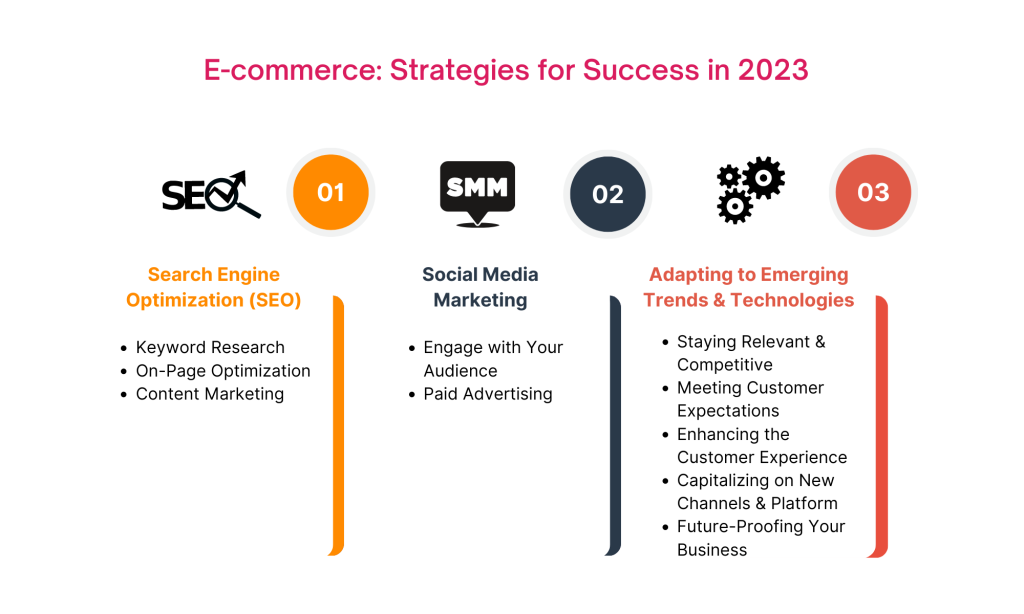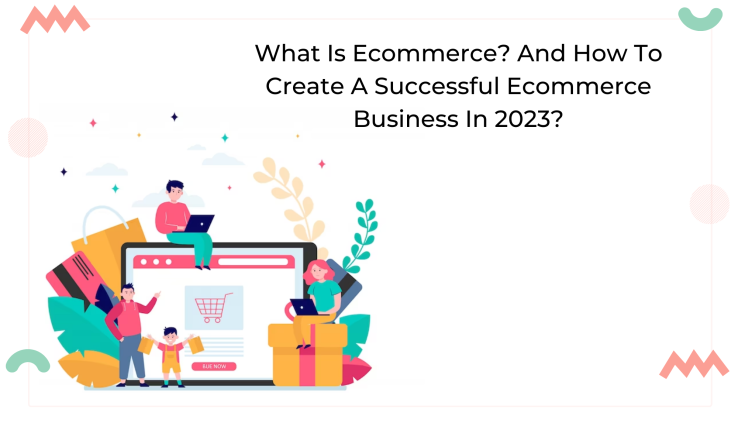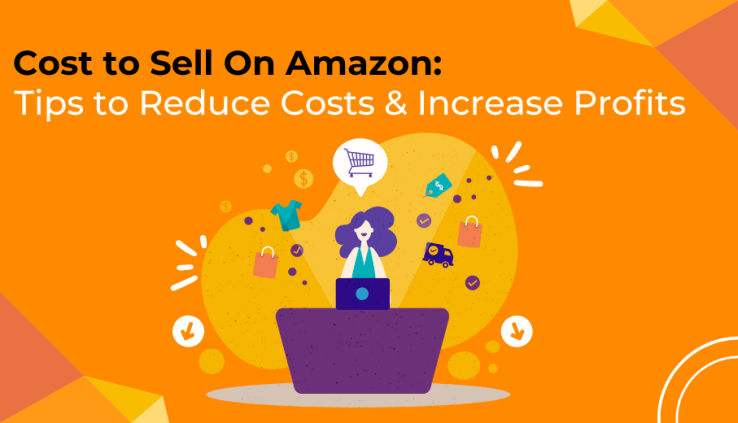What does e-commerce mean? E-commerce has revolutionized how people shop, allowing them to conveniently browse and purchase products from the comfort of their homes or on the go. With Amazon listing services, sellers can expand their customer base worldwide and boost their sales potential.
Recent research found that the global e-commerce market is projected to reach $6.38 trillion in 2023, reflecting a steady increase from previous years. Convenience and ease of shopping are significant factors influencing consumer behavior, as 78% of consumers made online purchases due to convenience, and 62% cited time-saving as a critical reason.
If you’re interested in starting your e-commerce venture in 2023, it’s essential to understand the fundamentals of this thriving industry, and the critical steps to creating a successful online business.
In this article, we’ll walk you through the basics and the key steps you need to take to set up and grow a successful e-commerce business in 2023.
What is Ecommerce Platform?
E-commerce encompasses various activities and relies on various technologies and platforms, such as websites, mobile applications, online marketplaces, and payment gateways, to facilitate transactions and provide a seamless shopping experience. These platforms typically include features like product catalogs, customer reviews, personalized recommendations, and order tracking.
It has completely transformed the retail industry, providing businesses with new growth opportunities, expanding customer reach, and creating a convenient and personalized shopping experience for consumers.
Overall, e-commerce has revolutionized how businesses and consumers interact, offering numerous advantages such as convenience, accessibility, a wider variety of products, cost savings, and the ability to compare prices and read reviews before purchasing.
How to Begin an E-commerce Business?
Despite the competition, e-commerce firms have a promising future. Because everyone uses online marketing for their firm, you’ll need to consider how to stand apart. Here’s where to begin:
1. Decide the Product or Service You Wish to Sell
The first and most important step in launching an e-commerce firm is deciding on a product or service to sell. Here are some considerations to help you make the right choice:
- Understanding Market Trends and Demand:
To create a successful ecommerce business, it’s essential to identify market trends and understand consumer demand. Conduct thorough market research to identify niches or industries that are currently thriving or poised for growth in 2023. Look for products or services that have a rising demand, as this will increase your chances of success.
- Consider Your Passion and Expertise
While it’s crucial to consider market trends, it’s equally important to choose a product or service that aligns with your passion and expertise. Running an ecommerce business requires dedication and perseverance, and being passionate about what you sell can provide you with the motivation to overcome challenges.
- Evaluate Profitability:
After narrowing down your options based on market trends and your passion, evaluate the profitability of each potential product or service. Consider factors such as profit margins, production costs, shipping fees, and any other expenses associated with selling the product or service. Conduct a thorough cost-benefit analysis to ensure that the venture will be financially viable and provide you with a sustainable income.
Additionally, conduct market tests or surveys to gauge consumer interest and gather feedback. Validation helps reduce the risk of investing time and resources into a product or service that might not generate the desired demand or sales.
2. Create a Business Plan
Creating a business plan acts as a roadmap for your business and helps you establish a solid foundation. Here’s an explanation of the key elements to include in your business plan:
- Business Objectives
Clearly define your short-term and long-term goals. Outline what you want to achieve with your e-commerce business, such as revenue targets, market expansion, or customer acquisition goals.
- Target Market
Identify your target market and understand their demographics, preferences, and buying behaviors. Define your ideal customer profile and determine how your product or service meets their needs.
- Competitive Analysis
Conduct a thorough analysis of your competitors. Identify their strengths, weaknesses, and unique selling propositions. This analysis will help you differentiate your business and develop strategies to gain a competitive advantage.
- Marketing Strategy
Outline your marketing and promotional activities to reach your target audience. Define your brand positioning, messaging, and channels you will use to attract and engage customers. Include strategies for SEO, social media marketing, content marketing, paid advertising, and customer retention.
- Financial Projections:
Develop financial projections to understand the revenue, costs, and profitability of your e-commerce business. Include sales forecasts, pricing strategies, cost of goods sold, operating expenses, and cash flow projections. This information will help you assess the financial viability of your business and secure funding if needed.
- Risk Assessment:
Identify potential risks and challenges that could impact your e-commerce business. Develop contingency plans and mitigation strategies to address these risks effectively.
Creating a business plan helps you stay focused on your objectives throughout your e-commerce journey.
3. Register your company
Registering your company involves formalizing your business name, determining the legal structure, and complying with legal requirements. Here’s a breakdown of the process:
- Choose a Unique Business Name
Select a distinctive and memorable name for your e-commerce business. Ensure that the name aligns with your brand and represents your products or services effectively.
- Determine the Legal Structure
Decide on the legal structure that best suits your business. The most common options for e-commerce businesses include sole proprietorship, partnership, limited liability company (LLC), or corporation. Each structure has different implications regarding taxes, liability, and ownership, so consider consulting with legal and financial professionals to determine the best fit for your situation.
- Register with Government Authorities
Register your business with the appropriate government authorities. The specific registration process and the government entity to register with may vary depending on your country and jurisdiction. Research the requirements of your local government or consult with a business attorney to ensure compliance.
- Obtain Licenses and Permits
Determine if your e-commerce business requires any licenses or permits to operate legally. The requirements can vary depending on the nature of your products or services and your location. Common examples include a general business license, sales tax permits, or industry-specific licenses. Research the specific regulations in your industry and jurisdiction, and obtain the necessary licenses and permits to operate within the legal framework.
- Comply with Tax Obligations
Understand the tax obligations for your e-commerce business. Register for tax identification numbers, such as an Employer Identification Number (EIN) or VAT number, if applicable. Familiarize yourself with the tax laws and regulations related to e-commerce, including sales tax collection and remittance requirements, and ensure compliance with tax obligations.
Registering your firm helps build trust with customers and ensures that you operate within the legal framework of your jurisdiction.
4. Create Your Online Store
- Choose an appropriate e-commerce platform or create a unique website.
- Verify that your website is mobile-friendly, aesthetically pleasing, and easy to use.
- Establish inventory control systems and integrate safe methods of payment.
Voila, you have established your E-commerce business successfully, now you are ready to set your game at the online marketplace. Remember to regularly evaluate your business processes, customer feedback, and market trends to identify areas for improvement. Seek feedback from customers and implement their suggestions to enhance their shopping experience.
By following these steps and continuously adapting to the evolving e-commerce landscape, you can establish a successful and thriving online business.
E-commerce: Strategies for Success in 2023
Effective marketing and customer-centric strategies are crucial to thrive in the highly competitive e-commerce landscape. In this section, we’ll cover critical strategies for success:

Search Engine Optimization (SEO)
Search Engine Optimization is optimizing your website to improve its visibility and ranking in search engine results pages (SERPs). By optimizing your website for SEO, you can increase organic traffic and attract potential customers. It involves various strategies, including:
- Keyword Research: Conduct research to identify relevant keywords and phrases that your target audience uses when searching for products or services.
- On-Page Optimization: Optimize individual web pages by optimizing meta tags (title tags and meta descriptions), headings, URLs, and content.
- Content Marketing: Create high-quality, informative, and engaging content that aligns with your target audience’s interests and needs. Publish blog posts, articles, videos, or infographics that incorporate relevant keywords naturally.
Social Media Marketing
Social media platforms offer a powerful avenue for building brand awareness, engaging with customers, and driving conversions. Consider the following strategies for social media marketing:
- Engage with Your Audience
Actively engage with your followers by responding to comments, messages, and mentions. Encourage user-generated content and share customer testimonials or reviews. Conduct contests, polls, or surveys to foster interaction and build a community around your brand.
- Paid Advertising
Consider leveraging paid advertising on social media platforms to expand your reach and target specific demographics or interests. Set clear goals, define your target audience, and create compelling ad campaigns to drive traffic and conversions.
Considering these factors and continually refining your strategies can increase your chances of creating a successful e-commerce business in 2023 and beyond.
Adapting to Emerging Trends and Technologies
Adapting to emerging trends and technologies is crucial for the long-term success and sustainability of your e-commerce business. As the digital landscape evolves, new trends and technologies constantly emerge, offering opportunities to improve efficiency, enhance the customer experience, and stay ahead of the competition.
Here’s an explanation of the importance of adapting to emerging trends and technologies:
- Staying Relevant and Competitive
By keeping up with emerging trends and technologies, you can ensure that your business remains relevant and competitive in the ever-changing e-commerce landscape.
- Meeting Customer Expectations
Customers’ expectations constantly evolve, and they seek seamless and convenient experiences when interacting with online businesses. Adapting to emerging trends and technologies allows you to meet these evolving expectations by offering new features, functionalities, and experiences that enhance customer satisfaction.
- Enhancing the Customer Experience
Emerging trends and technologies provide opportunities to create unique and personalized customer experiences. These enhancements can drive engagement, increase customer loyalty, and boost sales.
- Capitalizing on New Channels and Platforms
For instance, voice commerce through intelligent speakers or social commerce on platforms like Instagram and TikTok have gained significant popularity. Adapting to these new channels and platforms allows you to expand your reach and connect with a broader audience.
- Future-Proofing Your Business
Embracing emerging trends and technologies positions your business for future success. By staying proactive and adaptive, you can anticipate shifts in consumer behavior, market demands, and industry dynamics.
Continuous learning, experimentation, and a willingness to embrace change are essential to successfully adapting to emerging trends and technologies in the e-commerce space.
Wrapping up
As the e-commerce industry continues to evolve and expand, the potential for building a successful online business in 2023 is immense. By understanding the core principles of e-commerce, implementing effective strategies, adapting to emerging trends, and understanding what is ecommerce advertising you can create a thriving e-commerce venture that capitalizes on the digital revolution and caters to the changing needs of modern consumers.
The identifying a profitable niche, building a compelling website, implementing targeted marketing strategies, prioritizing exceptional customer experience, and staying agile in a rapidly evolving landscape, you can develop a well-structured business plan, which will help you stay organized, make informed decisions, and attract potential investors or partners.
By carefully considering these foundational elements, you can set a solid groundwork for your e-commerce business. And we, HR Tech LLC services, can be your ideal partner in this journey. With our expertise in the field, we offer tailored solutions that align with your unique business needs, ensuring optimal outcomes.
To find out more regarding our offerings and how we can support you in achieving your business goals, get in touch with us now!





